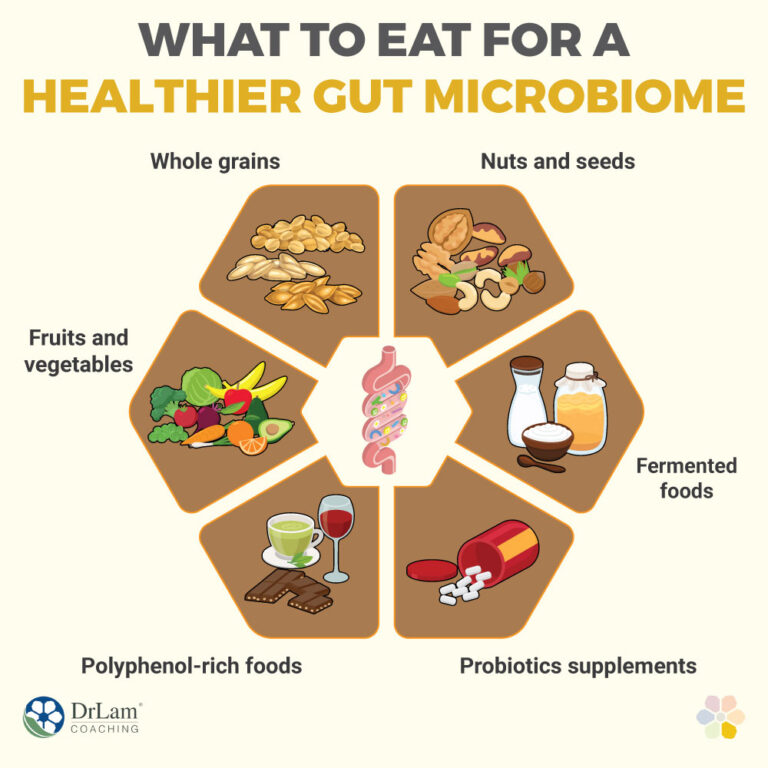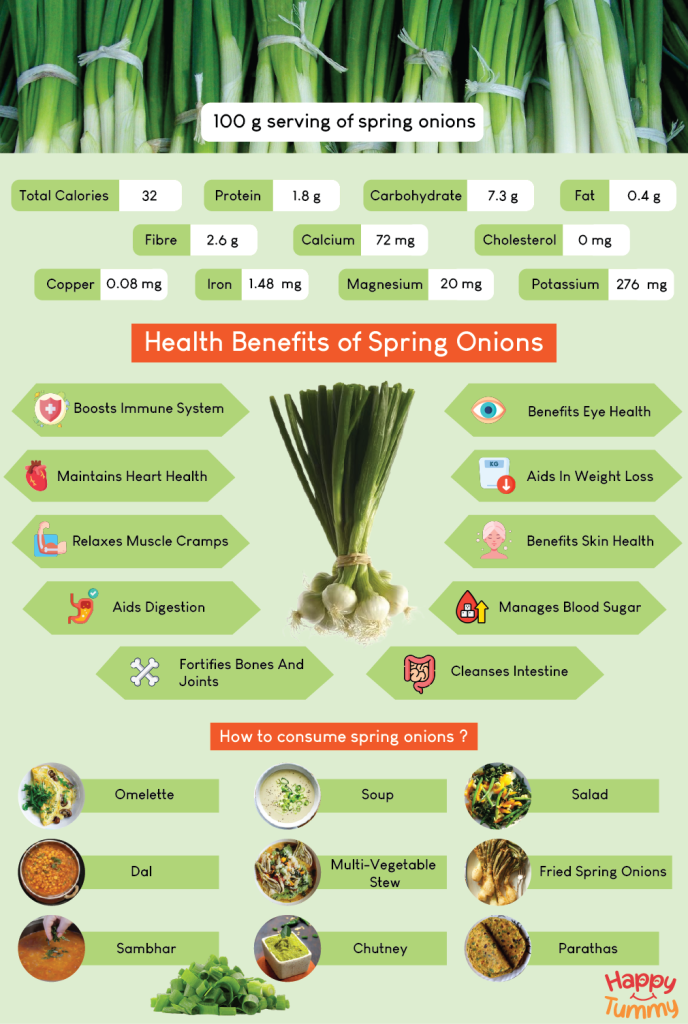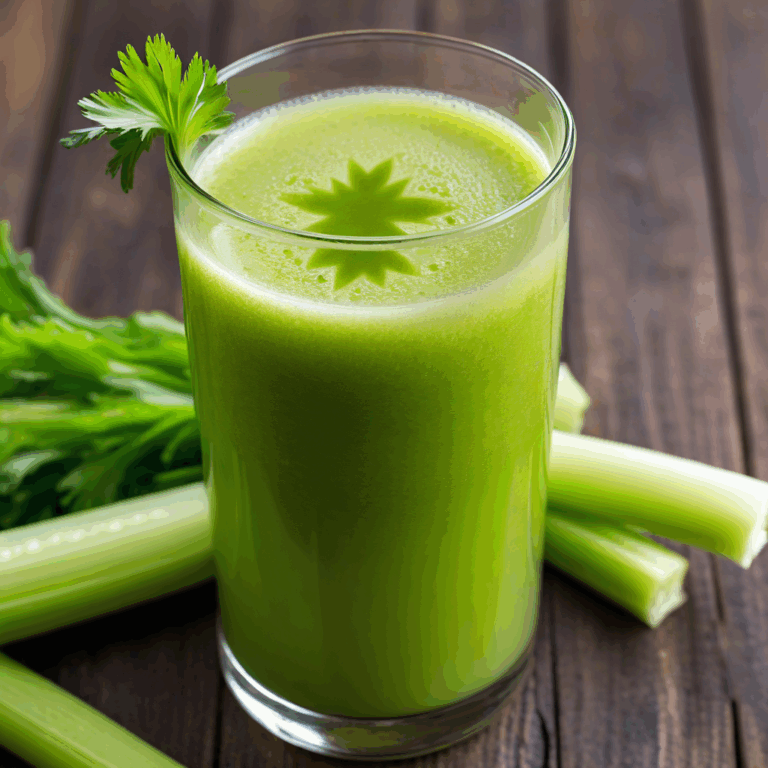The Inner Symphony: How Avocados Orchestrate a Fiber Feast for a Healthy Gut
Imagine a bustling, vibrant metropolis nestled deep within you – a city teeming with life, where billions of inhabitants work tirelessly, day and night, to maintain your well-being. This is your gut, a complex and awe-inspiring ecosystem, often referred to as your "second brain" or "inner garden." Within this intricate landscape, the resident microbial population, collectively known as the gut microbiome, orchestrates a delicate symphony that influences everything from digestion and nutrient absorption to immunity, mood, and even chronic disease risk.
For too long, the importance of this inner world was underestimated, relegated to the realm of mere waste disposal. But scientific breakthroughs have unveiled its profound influence, revealing that a healthy gut is not just a cornerstone of physical vitality but a fundamental determinant of overall human health. The modern lifestyle, however, with its reliance on processed foods, antibiotics, and chronic stress, has waged a quiet war on this delicate ecosystem, leading to widespread dysbiosis – an imbalance that can trigger a cascade of health issues.
In this narrative of dietary struggle and scientific revelation, a humble, emerald-green fruit emerges as an unsung hero: the avocado. Far from being just a trendy toast topping, the avocado is a nutritional powerhouse, a veritable "fiber feast" that holds the key to nurturing a robust gut microbiome and fostering optimal digestive health. This article will embark on a journey, delving deep into the science of how avocados, through their unique fiber profile and synergistic nutrients, act as master conductors, bringing harmony back to our inner symphony and paving the way for a healthier, happier you.
Chapter 1: The Unseen Metropolis – Understanding the Gut Microbiome
Before we crown the avocado our fibrous champion, it’s essential to understand the landscape it aims to nourish. Our gut is home to trillions of microorganisms – bacteria, fungi, viruses, and archaea – outnumbering our own human cells by a factor of ten to one. This diverse community, weighing up to 2 kg, performs an astonishing array of functions crucial for our survival.
The Roles of Our Microbial Residents:
- Digestion and Nutrient Absorption: While our own enzymes handle much of the initial breakdown, our gut bacteria excel at fermenting complex carbohydrates (fiber) that our bodies cannot digest. This process unlocks vital nutrients, including vitamins (K and some B vitamins) and short-chain fatty acids (SCFAs), which are potent energy sources and signaling molecules.
- Immune System Modulation: A staggering 70-80% of our immune cells reside in the gut. The microbiome constantly interacts with these cells, training and shaping our immune responses. A balanced microbiome helps differentiate between harmful pathogens and beneficial commensals, preventing autoimmune reactions and boosting resistance to infection.
- Gut Barrier Integrity: The intestinal lining acts as a critical barrier, allowing beneficial nutrients to pass into the bloodstream while blocking toxins, undigested food particles, and harmful microbes. A healthy microbiome produces SCFAs that nourish the cells lining the gut (colonocytes), strengthening tight junctions and preventing "leaky gut" (increased intestinal permeability).
- Neurotransmitter Production and Mood Regulation: The gut-brain axis is a bidirectional communication highway. Gut microbes produce a significant portion of the body’s serotonin, a key neurotransmitter influencing mood, sleep, and appetite. They also produce GABA, dopamine, and other compounds that impact brain function and mental well-being.
- Metabolic Health: The microbiome influences how we store fat, respond to insulin, and metabolize calories. Dysbiosis has been linked to obesity, type 2 diabetes, and metabolic syndrome.
The Modern Threat: Dysbiosis and Its Consequences:
Unfortunately, the urban sprawl of our gut metropolis is often under siege. A diet poor in fiber and rich in processed foods, excessive antibiotic use, chronic stress, lack of sleep, and environmental toxins can decimate beneficial microbial populations and allow opportunistic pathogens to flourish. This imbalance, known as dysbiosis, is implicated in a vast array of conditions:
- Digestive Disorders: Irritable Bowel Syndrome (IBS), Inflammatory Bowel Disease (IBD), constipation, diarrhea.
- Autoimmune Diseases: Rheumatoid arthritis, lupus, multiple sclerosis.
- Allergies and Asthma.
- Mental Health Issues: Depression, anxiety, autism spectrum disorders.
- Metabolic Diseases: Obesity, type 2 diabetes.
- Certain Cancers: Colorectal cancer.
The solution, then, is clear: we must nourish our inner garden, providing the right fuel for our beneficial microbes to thrive. And this is where fiber, particularly the kind found in abundance in avocados, takes center stage.
Chapter 2: The Master Architect – Fiber’s Indispensable Role
Fiber, often overlooked and underestimated, is the unsung hero of our diet. It’s the complex carbohydrate that our own digestive enzymes cannot break down, yet its passage through our system is anything but inert. Instead, it acts as the master architect, shaping the very landscape of our inner world, providing structure, sustenance, and signaling molecules for our gut residents.
Dietary fiber is broadly categorized into two main types, each playing distinct yet complementary roles:
1. Insoluble Fiber: The Structural Engineer
Found in the skins of fruits and vegetables, whole grains, and nuts, insoluble fiber does not dissolve in water. Its primary functions include:
- Bulking Agent: It adds volume to stool, making it softer and easier to pass.
- Transit Accelerator: It speeds up the passage of food and waste through the digestive tract, preventing constipation and reducing the risk of diverticular disease.
- Gut Cleanser: As it moves through the colon, it acts like a gentle scrub brush, helping to remove waste products and toxins from the intestinal walls.
2. Soluble Fiber: The Nurturer and Fermenter
Found in oats, barley, legumes, fruits (like apples, citrus, and yes, avocados), and vegetables, soluble fiber dissolves in water to form a gel-like substance. Its functions are profound:
- Prebiotic Powerhouse: This is where the magic truly happens for our gut microbiome. Soluble fiber serves as a fermentable feast for beneficial bacteria (like Bifidobacterium and Lactobacillus) in the colon. These bacteria break down the fiber, producing vital compounds.
- Short-Chain Fatty Acid (SCFA) Production: The fermentation of soluble fiber is the primary source of SCFAs, notably butyrate, acetate, and propionate. These are not just waste products; they are critical signaling molecules with far-reaching systemic effects:
- Butyrate: The preferred fuel source for colonocytes (cells lining the colon). It strengthens the gut barrier, reduces inflammation, supports immune function, and may even have anti-cancer properties.
- Acetate and Propionate: Travel to the liver and other tissues, influencing metabolism, satiety, blood sugar regulation, and cholesterol synthesis.
- Blood Sugar Regulation: The gel formed by soluble fiber slows down the absorption of glucose, leading to a more gradual rise in blood sugar after meals, which is beneficial for managing and preventing type 2 diabetes.
- Cholesterol Management: Soluble fiber can bind to bile acids in the small intestine, preventing their reabsorption and promoting their excretion. The liver then has to draw on cholesterol to produce new bile acids, thereby lowering blood cholesterol levels.
The Fiber Gap: A Modern Deficiency
Despite its critical importance, most people in Western societies consume far less than the recommended daily intake of fiber (25g for women, 38g for men). The average intake often hovers around 15g, a glaring "fiber gap" that starves our beneficial microbes and sets the stage for dysbiosis and a host of chronic health problems. Bridging this gap is paramount, and this is precisely where the avocado shines.
Chapter 3: Enter the Avocado – Our Emerald Champion
The avocado, scientifically known as Persea americana, is a fruit unlike any other. Often mistaken for a vegetable due to its savory applications, it stands out in the fruit kingdom for its high fat content and, crucially, its remarkable fiber profile. Beyond its creamy texture and rich flavor, the avocado is a nutritional powerhouse, making it an ideal candidate for fostering a healthy gut.
A Glimpse into the Avocado’s Nutritional Treasure Chest:
A single medium-sized avocado (approx. 200g) contains:
- Calories: ~320
- Fat: ~29g (predominantly healthy monounsaturated fats)
- Carbohydrates: ~17g
- Protein: ~4g
- Fiber: ~13.4g
This fiber content alone makes it an outstanding contributor to daily fiber goals, delivering over 50% of the recommended daily intake for women and over 35% for men in just one fruit. But it’s not just the quantity; it’s the quality and balance of avocado’s fiber that truly sets it apart.
The Avocado’s Unique Fiber Blend: A Symphony in Green
Avocados boast a rich combination of both soluble and insoluble fiber, typically in a ratio that is highly beneficial for digestive health. While the exact ratio can vary slightly, a significant portion (around 70%) of avocado’s fiber is insoluble, with the remaining 30% being soluble. This balanced blend ensures a comprehensive approach to gut support:
- Insoluble Fiber for Gut Motility: The abundant insoluble fiber in avocados acts as a natural laxative, adding bulk to stool and facilitating its smooth passage through the intestines. This is crucial for preventing constipation, a common ailment that can lead to discomfort, toxin reabsorption, and contribute to dysbiosis. By promoting regular bowel movements, avocados help to efficiently remove waste products and maintain a cleaner, healthier intestinal environment.
- Soluble Fiber for Microbial Feast: The soluble fiber in avocados, upon reaching the colon, becomes the preferred substrate for fermentation by beneficial gut bacteria. This fermentation process yields a rich supply of SCFAs, which, as we’ve discussed, are vital for maintaining the integrity of the gut barrier, reducing inflammation, and supporting overall metabolic health. The specific types of soluble fibers in avocados (e.g., galactomannan) are particularly effective at promoting the growth of specific beneficial bacteria strains.
This harmonious blend means avocados provide both the "plumbing" (insoluble fiber for smooth transit) and the "fertilizer" (soluble fiber for microbial growth) for our inner garden, ensuring it remains well-maintained and fertile.
Chapter 4: The Avocado’s Grand Tour – A Journey Through the Digestive Tract
To truly appreciate the avocado’s impact, let’s follow its journey through the digestive system, observing how its unique composition interacts with our body at each stage.
1. The Overture: Mouth and Esophagus
The journey begins in the mouth, where mechanical chewing breaks down the avocado’s creamy flesh. Enzymes in saliva initiate carbohydrate digestion, though the fiber remains largely intact. The bolus then glides down the esophagus, a smooth, uneventful passage for our fibrous friend.
2. The Acidic Antechamber: The Stomach
In the stomach, the avocado encounters a highly acidic environment and powerful digestive enzymes. Here, the protein and some of the fats begin to break down. However, the complex fiber matrix of the avocado largely withstands this assault, maintaining its structural integrity, a crucial aspect of its later actions. The healthy monounsaturated fats (MUFAs) in avocados, primarily oleic acid, also begin to be processed, contributing to satiety and slowing down stomach emptying, which can help regulate blood sugar levels.
3. The Nutrient Nexus: Small Intestine
As the avocado chyme moves into the small intestine, the primary site for nutrient absorption, its healthy fats, vitamins (K, C, E, B-vitamins like folate), and minerals (potassium, magnesium) are efficiently absorbed into the bloodstream. The soluble fiber, still largely intact, begins to absorb water, forming a viscous gel. This gel plays a vital role in slowing down the absorption of glucose, contributing to stable blood sugar levels. Furthermore, avocado’s soluble fiber can bind to bile acids, which are essential for fat digestion. This binding prevents some bile acids from being reabsorbed and recycled, leading to their excretion. To compensate, the liver must produce new bile acids, utilizing cholesterol from the bloodstream, thereby contributing to lower LDL ("bad") cholesterol levels. The insoluble fiber continues its journey, adding bulk and promoting gentle movement.
4. The Grand Finale: The Large Intestine (Colon)
This is where the avocado’s fiber truly performs its magnum opus.
-
Insoluble Fiber’s Role: The insoluble fiber, having traversed the entire upper digestive tract relatively unchanged, reaches the colon. Here, it continues to draw water into the stool, increasing its bulk and softness. This mechanical action is critical for stimulating peristalsis – the rhythmic contractions of the colon muscles that propel waste material forward. The result is improved bowel regularity and the prevention of constipation, a common source of discomfort and a contributor to an unhealthy gut environment. By ensuring efficient waste elimination, insoluble fiber helps to reduce the reabsorption of toxins and spent hormones, promoting detoxification.
-
Soluble Fiber’s Prebiotic Symphony: The soluble fiber in avocados, now fully hydrated and gel-like, becomes the star of the show for our gut microbes. Billions of beneficial bacteria, particularly Bifidobacterium and Lactobacillus species, eagerly ferment this soluble fiber. This fermentation process is not merely a breakdown; it’s a sophisticated biochemical conversion that yields a treasure trove of compounds, most notably the short-chain fatty acids (SCFAs): butyrate, acetate, and propionate.
-
Butyrate: The Gut’s Superfuel: Butyrate is the primary energy source for the colonocytes, the cells lining our colon. By nourishing these cells, butyrate directly strengthens the intestinal barrier, preventing "leaky gut" and the unwanted passage of toxins and undigested food particles into the bloodstream. It also possesses potent anti-inflammatory properties, dampening excessive immune responses in the gut, which is crucial for managing conditions like IBD. Emerging research even suggests butyrate can play a role in epigenetic modulation, influencing gene expression in ways that promote health and prevent disease.
-
Acetate and Propionate: Systemic Messengers: While some acetate is used in the colon, much of it, along with propionate, enters the bloodstream and travels to the liver and other tissues. Here, they influence glucose and lipid metabolism, contributing to better blood sugar control and potentially reducing the risk of metabolic syndrome. Propionate, in particular, has been linked to satiety signals, potentially helping with weight management by promoting a feeling of fullness.
-
The avocado, therefore, doesn’t just pass through; it actively engages with our internal ecosystem, providing the essential nourishment and structural support needed for a thriving gut.
Chapter 5: Beyond Fiber – The Avocado’s Supporting Cast
While fiber is the avocado’s leading role in gut health, it’s far from a solo act. The fruit’s rich nutritional profile provides a powerful supporting cast of compounds that work synergistically to enhance its digestive and overall health benefits.
1. Healthy Monounsaturated Fats (MUFAs): The Anti-Inflammatory Lubricant
Avocados are renowned for their high content of monounsaturated fats, predominantly oleic acid (the same healthy fat found in olive oil). These fats are not just calorie sources; they play crucial roles in gut health:
- Nutrient Absorption: MUFAs are essential for the absorption of fat-soluble vitamins (A, D, E, K), many of which are present in avocados themselves or in other foods consumed with them.
- Anti-Inflammatory Properties: Oleic acid has demonstrated anti-inflammatory effects throughout the body, including the gut. Chronic low-grade inflammation in the gut can damage the intestinal lining and contribute to dysbiosis. By mitigating this inflammation, avocado’s fats help create a more hospitable environment for beneficial microbes.
- Satiety: The healthy fats contribute to a feeling of fullness and satisfaction, which can help prevent overeating and support weight management, indirectly impacting gut health by promoting a balanced diet.
2. Antioxidants: The Cellular Protectors
Avocados are rich in various antioxidants, including vitamin E, vitamin C, carotenoids like lutein and zeaxanthin, and various polyphenols.
- Combating Oxidative Stress: Oxidative stress can damage cells, including those lining the gut, and contribute to inflammation and "leaky gut." Antioxidants neutralize harmful free radicals, protecting the delicate intestinal lining and supporting its repair mechanisms.
- Immune Support: Vitamins C and E are crucial for a robust immune system, which is intimately linked to gut health.
3. Potassium: The Electrolyte Balancer and Muscle Supporter
Avocados are an excellent source of potassium, an essential electrolyte.
- Fluid Balance: Potassium plays a critical role in maintaining proper fluid balance within cells and throughout the body, which is vital for digestive function and preventing dehydration-related constipation.
- Muscle Function: Potassium is necessary for proper muscle contraction, including the smooth muscles of the gastrointestinal tract that drive peristalsis. Adequate potassium intake ensures efficient gut motility.
4. B-Vitamins (especially Folate): The Cell Builders
Avocados provide a good amount of B-vitamins, particularly folate.
- Cell Division and Repair: Folate is essential for DNA synthesis and cell division. This is crucial for the rapid turnover of intestinal cells, which constantly need to be repaired and replaced to maintain a healthy gut barrier.
In essence, the avocado is a holistic package. Its fiber acts as the primary driver for gut health, but its accompanying fats, vitamins, minerals, and antioxidants work in concert, amplifying its benefits and providing comprehensive support for the entire digestive system and beyond.
Chapter 6: Cultivating Your Inner Garden – Integrating Avocados into Your Life
Now that we understand the profound impact of avocados on gut health, the question becomes: how do we invite this emerald champion into our daily lives? The beauty of the avocado lies in its versatility and ease of incorporation.
Simple Ways to Embrace the Fiber Feast:
- The Classic Avocado Toast: Elevate your breakfast with a generous smear of mashed avocado on whole-grain toast, perhaps topped with a sprinkle of chili flakes or everything bagel seasoning.
- Salad Enhancer: Add sliced or diced avocado to any salad for a creamy texture, healthy fats, and a significant fiber boost. It pairs beautifully with leafy greens, other vegetables, and lean proteins.
- Smoothie Power-Up: A quarter to half an avocado can make your smoothies incredibly creamy and satisfying, without imparting a strong flavor, while stealthily adding fiber and healthy fats.
- Guacamole Galore: This traditional dip is a fantastic way to consume avocados. Pair it with raw vegetables for an extra fiber punch, or use it as a healthy condiment for meals.
- Egg Companion: Slice avocado alongside scrambled eggs or an omelet for a complete and nutritious meal.
- Sandwich/Wrap Spread: Replace mayonnaise with mashed avocado for a healthier, nutrient-dense spread.
- Dessert Surprise: Believe it or not, avocados can create surprisingly decadent and healthy desserts, like chocolate avocado mousse, thanks to their creamy texture.
A Holistic Perspective: Beyond the Avocado
While avocados are a stellar component of a gut-healthy diet, it’s crucial to remember that they are part of a larger ecosystem. True gut health is cultivated through a holistic approach that encompasses diverse dietary choices and lifestyle factors:
- Dietary Diversity: Aim for a wide variety of plant-based foods – different fruits, vegetables, legumes, whole grains, nuts, and seeds. Each plant food contains unique fibers and phytochemicals that feed different strains of beneficial bacteria, fostering a resilient and diverse microbiome.
- Hydration: Drink plenty of water. Fiber needs water to do its job effectively, especially insoluble fiber which bulks up stool.
- Mindful Eating: Eat slowly, chew your food thoroughly, and pay attention to your body’s hunger and fullness cues.
- Stress Management: Chronic stress can negatively impact gut motility, permeability, and microbial balance. Incorporate stress-reducing practices like meditation, yoga, deep breathing, or spending time in nature.
- Adequate Sleep: Prioritize 7-9 hours of quality sleep per night. Sleep deprivation can disrupt the gut microbiome and increase inflammation.
- Regular Exercise: Physical activity has been shown to positively influence gut microbial diversity and function.
- Limit Processed Foods, Sugar, and Artificial Sweeteners: These elements can feed harmful bacteria, deplete beneficial ones, and contribute to inflammation and dysbiosis.
- Consider Probiotics and Prebiotics (Strategically): While avocados are a natural prebiotic, specific probiotic supplements or fermented foods (kefir, sauerkraut, kimchi) might be beneficial for some individuals, under guidance.
Conclusion: Embracing the Fiber Feast for a Flourishing Future
The story of the avocado and the gut is a compelling narrative of nature’s wisdom meeting modern scientific understanding. In an era where our inner ecosystems are often under assault, the avocado emerges as a powerful ally, a verdant champion capable of orchestrating harmony within our gut metropolis. Its unique blend of soluble and insoluble fiber, coupled with its rich array of healthy fats, vitamins, and minerals, provides a comprehensive toolkit for nurturing a robust microbiome and optimizing digestive function.
By embracing this "Fiber Feast," we’re not just adding a delicious fruit to our diet; we’re making a conscious investment in our long-term health. We’re providing the essential fuel for our beneficial microbes, strengthening our gut barrier, reducing inflammation, enhancing nutrient absorption, and fostering a profound connection between our gut and our overall well-being.
So, the next time you reach for an avocado, remember the intricate dance happening within. You’re not just enjoying a creamy, flavorful treat; you’re participating in a vital act of self-care, cultivating your inner garden, and ensuring that the symphony of your gut continues to play a vibrant, harmonious tune. Let the avocado be your guide to a healthier gut, a happier digestion, and a more flourishing life.







